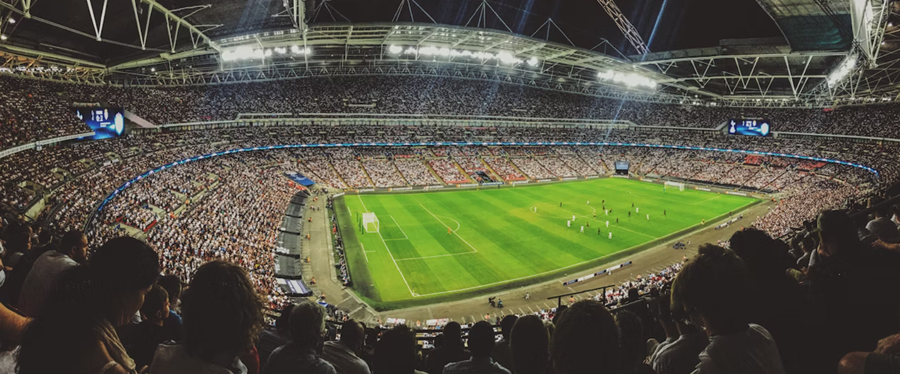There are few spectacles that captivate audiences with the intensity and passion quite like the clashes between the biggest of the football giants FC Barcelona, Manchester United, Liverpool FC, and Real Madrid, to name a few. These titanic battles not only showcase the exceptional skills of the players but also underscore the intricate dynamics of football economics, where demand soars to astronomical heights, resulting in an ever-escalating pursuit for tickets to witness these games
The English Premier League
Arguably, the biggest teams in the Premier League are Manchester United and Liverpool FC, both of which play in front of sell-out crowds for all home games. The allure of witnessing these iconic teams, both steeped in history and boasting some of the world’s most talented players, create a huge demand for a highly limited amount of tickets. Both Old Trafford and Anfield stadium are often sold-out with thousands of international fans making the journey to see their beloved team.
This inherent scarcity drives Premier League ticket prices skywards, often leaving even the most ardent fans, with the dilemma of paying a premium or missing out completely. The pursuit for these coveted football tickets becomes an economic battleground, where the forces of supply and demand clash, leaving fans to weigh the sentimental value against the financial strain. The Football Association are fully aware of this demand for tickets and allow for individual teams to manage ticketing as they choose. Liverpool FC for example have a scheme in which they sell several hundred tickets to only people in the city of Liverpool.
UEFA Champions League
It is not only the domestic leagues that command such a high demand, the biggest club competition in European football, the UEFA Champions League also has huge appeal. The UCL brings together football royalty from across the continent, including the likes of FC Barcelona and Real Madrid. These perennial contenders for the prestigious trophy ignite a global frenzy, with fans from around the world vying for the opportunity to witness these games, with the aim of continental supremacy.
Securing tickets to European matches including the Champions League featuring these football powerhouses requires a level of dedication and strategic planning. The demand for these limited tickets surpasses supply by a significant margin, driving up prices and leaving many to rely on secondary markets including FanSeats, or resellers for a chance to experience the electrifying atmosphere firsthand.
For the biggest game of all, the Champions League Final, UEFA have created a ballot system in which fans can apply for tickets at normal prices.
In general, football economics emerges as a multifaceted domain, where the fusion of passion, tradition, and the allure of witnessing the world’s finest players in action intertwines with the principles of supply and demand, ultimately shaping the price dynamics of tickets to the biggest football matches. Whether it’s the thrill of the Premier League or the glamour of the UEFA Champions League, fans find themselves navigating a complex landscape where their devotion is tested against the ever-increasing costs.
As the beautiful game continues to enthrall and unite fans worldwide, the enduring popularity and economic significance of these mega clashes between FC Barcelona, Manchester United, Liverpool FC, and Real Madrid underscore the timeless allure of football as a global cultural phenomenon, where the desire to be part of history and witness greatness knows no bounds.









